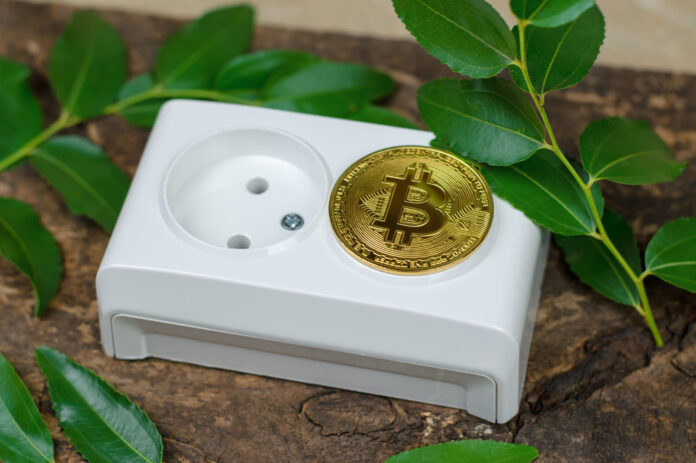This week, PayPal’s Blockchain Research Group, in collaboration with the non-profit organization EnergyWeb, unveiled a new initiative to incentivize Bitcoin miners to employ clean energy in their operations.
The project offers a financial reward to network participants who commit to and certify an environmentally friendly approach.
Bitcoin mining is a procedure in which participants, known as “miners,” solve cryptograms to generate new transaction blocks in a cryptocurrency’s blockchain. Those who are fastest get bitcoins for their work.
Bitcoin miners use computationally demanding and energy-intensive equipment to solve these puzzles in order to achieve the expected mining reward. As a result, the environmental effect of this activity has become a topic of interest in recent years, with some detractors advocating banning it.
“According to recent estimates, Bitcoin mining is currently responsible for around 85 million tons of annual carbon dioxide equivalent,” PayPal officials note.
PayPal wants to incentivize “green” Bitcoin mining
In a research paper, the collaborators laid out a model that would hand out bitcoins to “green” cryptocurrency miners, or those participants who use low-carbon energy sources to power their mining operations.
The proposal would consist of detecting these miners through a verification platform such as Energy Web’s ‘Green Proofs for Bitcoin. Miners would be identified through their public keys with a multi-signature payment address, which would facilitate the receipt of the ‘reserved’ Bitcoin reward if they qualify.
This clean energy validation platform would enable Bitcoin miners to achieve low-carbon accreditation for their mining operations, as detailed in the document.
Those who mine in a green way could identify and include the “green transaction” on the blockchain, along with an “exchange transaction” that would allow them to receive the additional Bitcoin reward reserved in the multi-signature payment address. According to the authors, “only the miner who includes the green transaction, redeems the transaction and successfully mines the next block” will receive the additional reward.
Green miners will be incentivized to mine these transactions, as they will be the only ones eligible for the additional BTC reward per “block.”
The goal is that while the low transaction fees would deter most miners from giving preference to these “green” blockchain transactions, green miners would be incentivized to mine them because of the additional Bitcoin reward.
Miners’ footprint on the environment
Using low-carbon mining methods reduces carbon emissions, which slows global warming, according to the National Oceanic and Atmospheric Administration.
There is still no consensus regarding the global energy footprint of Bitcoin miners. Last year, following a study, Cambridge University reported that previous energy forecasts had greatly overestimated the actual figures. For their part, Bitcoin advocates believe that mining could exploit energy surpluses and even encourage renewables.



